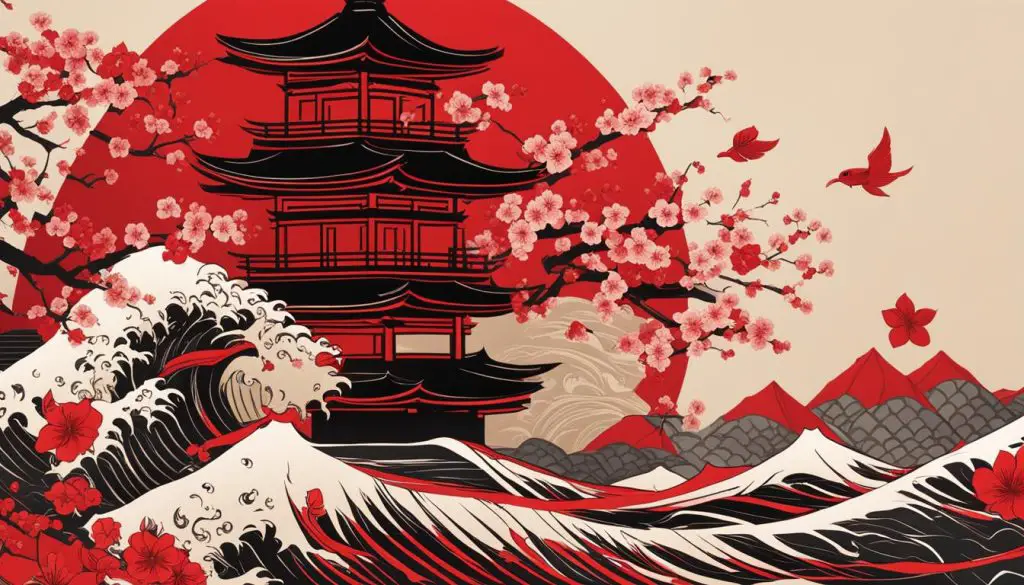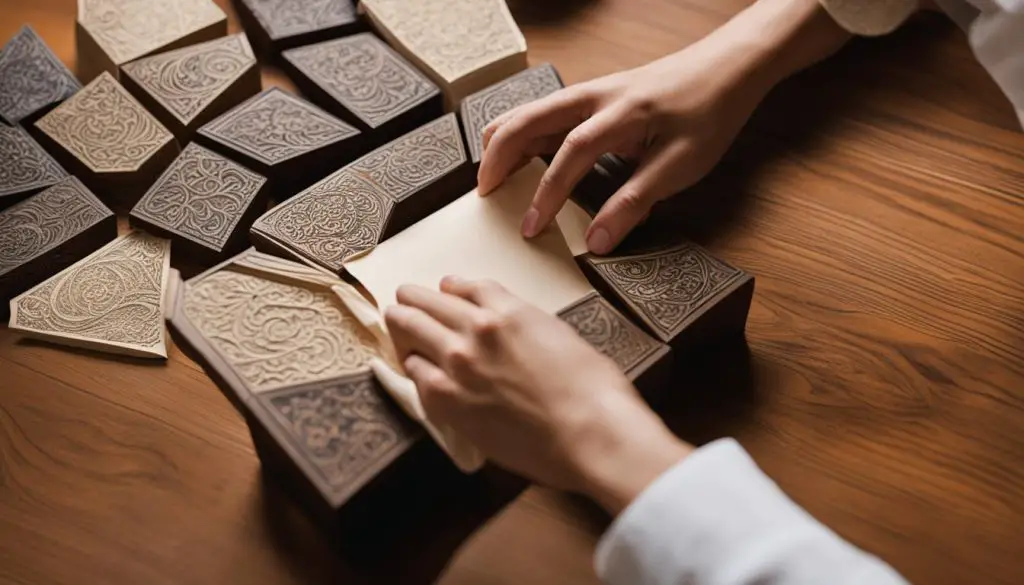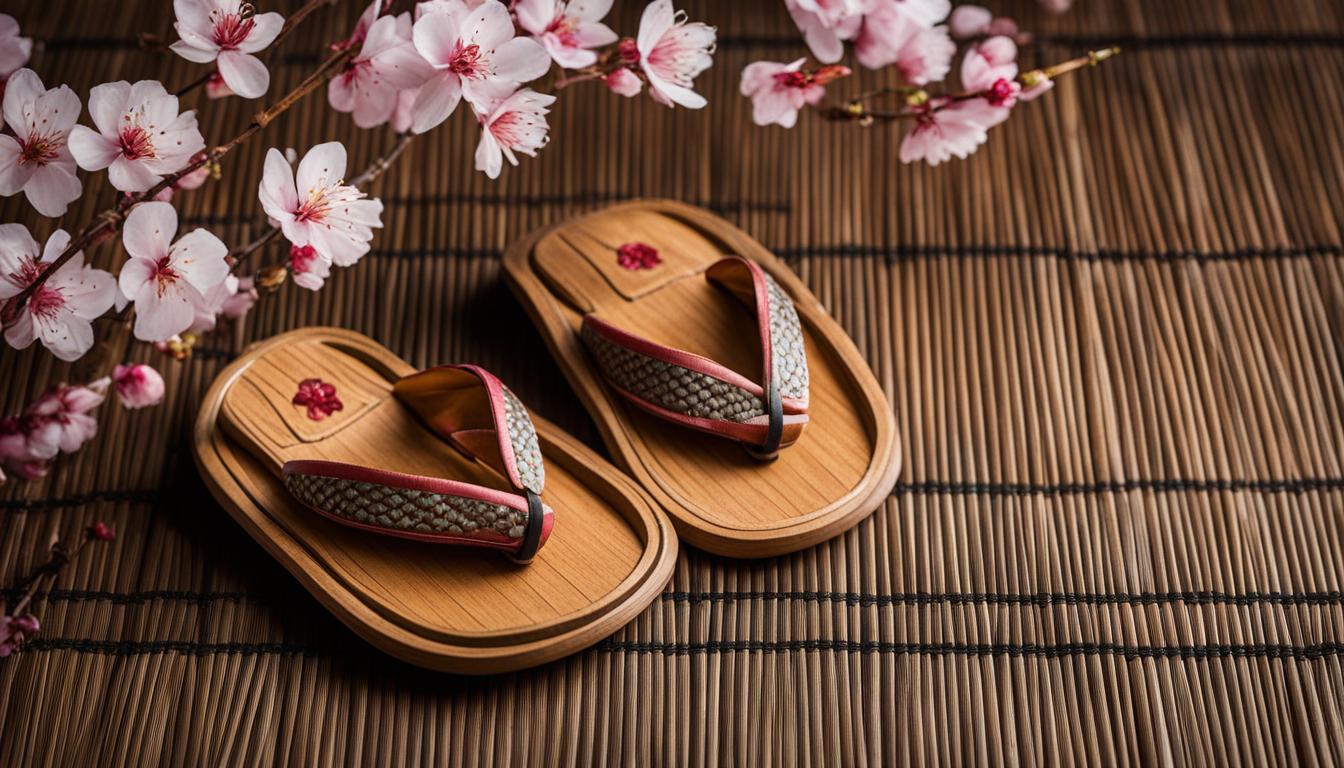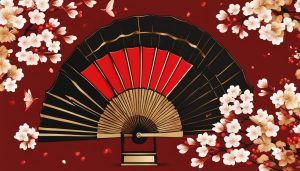In Japanese culture, expressing good luck is a common practice, and it is one of the best ways to improve cultural understanding and connect better with locals. However, it’s important to be aware of cultural appropriateness and understand the proper way to wish luck in Japanese. Let’s explore if it’s OK to say good luck in Japanese culture and how to do it respectfully.
Contents
- 1 How to Say Good Luck in Japanese?
- 2 What Does Ganbaru Mean?
- 3 7 Different Ways to Say Good Luck in Japanese
- 4 Symbols of Good Luck in Japanese Culture
- 5 Conclusion
- 6 FAQ
- 6.1 Is it appropriate to say good luck in Japanese culture?
- 6.2 How do you say good luck in Japanese?
- 6.3 What does the word “ganbaru” mean?
- 6.4 What are some alternative phrases for wishing good luck in Japanese?
- 6.5 Are there any symbols of good luck in Japanese culture?
- 6.6 Can saying good luck in Japanese improve cultural understanding?
- 7 Source Links
Key Takeaways:
- Expressing good luck is a common practice in Japanese culture
- Understanding cultural appropriateness is essential when wishing luck
- Proper phrases like “ganbatte” can be used to wish luck in Japanese
- Respecting cultural etiquette fosters better cultural understanding
- Symbols like Maneki Neko and Omamori are associated with good luck in Japanese culture
How to Say Good Luck in Japanese?
When it comes to wishing someone good luck in Japanese, the most common phrase used is “ganbatte.” Although it doesn’t have a direct translation to “good luck,” it is widely understood and appreciated by Japanese people. Depending on the situation and level of formality, you can also use variations of this phrase such as “ganbatte ne” or “ganbatte kudasai.”
It’s important to choose the appropriate phrase based on the context and your relationship with the person you are wishing luck. If you’re speaking to a friend or someone of equal status, “ganbatte” is generally suitable. On the other hand, if you are addressing a superior or someone you want to show extra respect to, using “ganbatte kudasai” is more appropriate.
Remember, cultural sensitivity is key when using these phrases. Being aware of the proper way to wish luck in Japanese shows respect for the language and culture, and it can help you connect better with Japanese locals.
Common Phrases for Wishing Luck in Japanese Culture
| Phrase | Meaning | Usage |
|---|---|---|
| “Ganbatte” | To do your best | Informal, suitable for friends or peers |
| “Ganbatte ne” | To do your best | Slightly more polite, suitable for acquaintances |
| “Ganbatte kudasai” | Please do your best | Polite, suitable for superiors or people you want to show extra respect to |
By using these phrases appropriately, you can show your support and well wishes to others in Japanese culture. Remember to always consider the context and your relationship with the person you are addressing. This will ensure that your wishes of good luck are respectful and well-received.
What Does Ganbaru Mean?
In Japanese culture, the word “ganbaru” holds deep cultural significance. It is a verb that translates to “to persevere” or “to do one’s best.” The concept of “ganbaru” reflects the Japanese value of continuous effort and determination, regardless of the outcome. It embodies the idea of giving one’s utmost effort in all endeavors and is considered admirable in Japanese society.
The word “ganbaru” encompasses the belief that success is not solely determined by the end result, but by the effort and dedication put into the process. It emphasizes the importance of resilience, persistence, and giving one’s best in every situation. It is a core aspect of Japanese work ethic, education, and personal development.
Understanding the meaning and cultural significance of “ganbaru” is crucial when exploring the practice of wishing good luck in Japanese culture. By acknowledging and appreciating the value placed on perseverance and effort, we can better comprehend the cultural context in which the phrase “good luck” is expressed in Japanese.

The Cultural Significance of Ganbaru
“Ganbaru” represents the Japanese belief in giving your all, regardless of the outcome. It is a mindset that promotes personal growth, resilience, and a sense of communal support. By understanding the cultural significance of “ganbaru,” we can navigate the proper way to wish someone good luck in Japanese culture, ensuring our expressions are respectful and meaningful.
Ganbaru in Everyday Life
The concept of “ganbaru” extends beyond specific situations and can be observed in various aspects of Japanese culture. From academic pursuits to sports, career aspirations, and personal relationships, the value placed on perseverance and giving one’s best is deeply ingrained in the Japanese mindset. By embracing this cultural concept, we can foster a deeper understanding and respect for the cultural practices surrounding good luck in Japanese culture.
7 Different Ways to Say Good Luck in Japanese
When it comes to wishing someone good luck in Japanese, there are several alternative phrases you can use. Each phrase carries its own nuances and levels of formality, allowing you to tailor your well wishes based on the context and relationship with the person you are addressing. Here are seven different ways to say good luck in Japanese:
- Ganbatte – This is the most common and natural way to wish someone good luck in Japanese. It is widely used by native speakers and can be used in various situations and levels of formality.
- Ouen shite imasu – This phrase translates to “I’m rooting for you” and is a supportive way to wish someone luck.
- Umaku ikimasu you ni – Meaning “May it turn out well for you,” this phrase expresses the hope for a positive outcome.
- Kouun wo inorimasu – This phrase is more formal and translates to “I pray for your good luck.”
- Yoi un wo negaimasu – Similar to the previous phrase, this one also expresses the wish for good luck but in a slightly different way.
- Shouri wo inotteimasu – If you want to specifically wish someone success, you can use this phrase, which means “I pray for your victory.”
- Ten no megumi wo inotteimasu – This phrase carries a deeper spiritual meaning, as it translates to “I pray for the blessing from heaven.”
By using these alternative phrases, you can show cultural sensitivity when wishing someone good luck in Japanese. It’s important to consider factors such as the formality of the situation and your relationship with the person to choose the most appropriate phrase.
Table: Different Ways to Say Good Luck in Japanese
| Phrase | Meaning | Level of Formality |
|---|---|---|
| Ganbatte | Do your best | Informal |
| Ouen shite imasu | I’m rooting for you | Informal |
| Umaku ikimasu you ni | May it turn out well for you | Polite |
| Kouun wo inorimasu | I pray for your good luck | Formal |
| Yoi un wo negaimasu | I wish you good luck | Formal |
| Shouri wo inotteimasu | I pray for your victory/success | Formal |
| Ten no megumi wo inotteimasu | I pray for the blessing from heaven | Formal |
Using these different phrases allows you to vary your expressions of good luck in Japanese and demonstrate an understanding of cultural sensitivity. Remember to choose the appropriate phrase based on the context and relationship with the person you are wishing luck.
Symbols of Good Luck in Japanese Culture
In Japanese culture, there are numerous symbols and traditions believed to bring good luck. These symbols hold deep cultural significance and are often associated with specific meanings and traditions. Understanding and appreciating these symbols can enhance your understanding and appreciation of Japanese culture. Here are some popular symbols of good luck:
1. Maneki Neko (Lucky Cat)

Omikuji are small strips of paper fortunes that can be found at shrines and temples throughout Japan. These fortunes offer predictions and guidance for various aspects of life, including love, health, and finances. It is believed that by following the advice given in the omikuji, one can change their fate and attract good luck.
4. Omamori (Talismans)
Omamori are amulets or talismans sold at shrines and temples in Japan. They are usually small fabric pouches containing prayers and blessings. Omamori are carried or hung in various places such as bags, cars, or homes, and are believed to offer protection and bring good luck to the owner. Each omamori is dedicated to a specific purpose, such as good fortune, success in exams, or safe travels.
By familiarizing yourself with these symbols of good luck in Japanese culture, you can gain a deeper understanding of the customs and beliefs that shape Japanese society. These symbols not only reflect the values of perseverance and positivity, but they also serve as reminders to embrace good fortune and strive for success.
Conclusion
Saying good luck in Japanese is a culturally appropriate practice that can enhance your understanding of Japanese culture and establish better connections with locals. By using the proper phrases, such as “ganbatte,” you can convey your best wishes and support to others. It’s important to be mindful of the context and your relationship with the person you are wishing luck, in order to choose the appropriate phrase.
Understanding the cultural etiquette in Japanese is crucial when it comes to saying good luck. By respecting the cultural norms and values, you can navigate this aspect of Japanese culture respectfully and accurately. Remember that the concept of “ganbaru,” which means to persevere and do one’s best, holds great significance in Japanese society.
In conclusion, it is absolutely okay to say good luck in Japanese culture, as long as it is done in a thoughtful and respectful manner. By learning about the appropriate phrases and cultural etiquette, you can engage in meaningful exchanges and deepen your connection with Japanese culture. So, go ahead and wish someone good luck in Japanese with confidence!
FAQ
Is it appropriate to say good luck in Japanese culture?
Yes, saying good luck in Japanese is generally well-received and can help foster cultural understanding and connection.
How do you say good luck in Japanese?
The most common and natural way to wish someone good luck in Japanese is to say “ganbatte.” Other variations include “ganbatte ne” and “ganbatte kudasai.”
What does the word “ganbaru” mean?
“Ganbaru” is a Japanese verb that means “to persevere” or “to do one’s best.” It reflects the Japanese value of making a continuous effort and finding value in the process.
What are some alternative phrases for wishing good luck in Japanese?
Other natural expressions include “ouen shite imasu” (I’m rooting for you) and “umaku ikimasu you ni” (May it turn out well for you).
Are there any symbols of good luck in Japanese culture?
Yes, some popular symbols include the Maneki Neko (Lucky Cat), Koi fish, Omikuji (paper fortunes), and Omamori (talismans).
Can saying good luck in Japanese improve cultural understanding?
Yes, expressing good luck in Japanese can help improve cultural understanding and connect better with locals when done respectfully.





